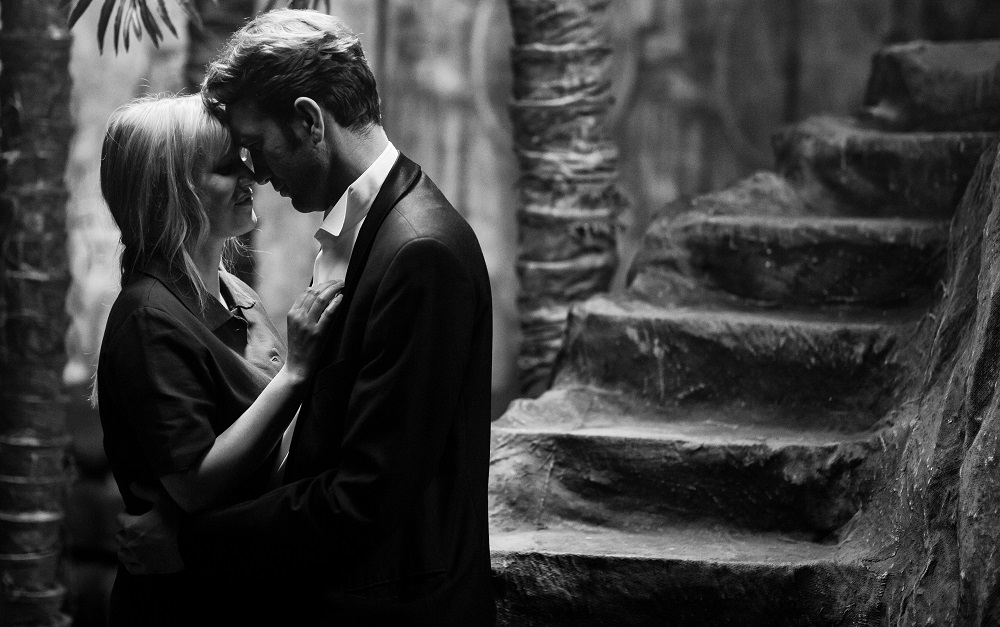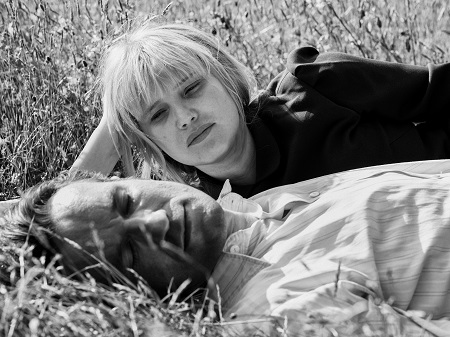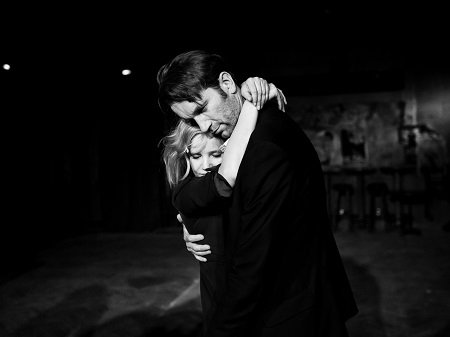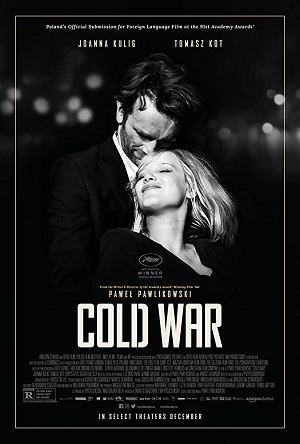
Haunting Cold War an Unforgettable Story of Music and Romance
Wiktor (Tomasz Kot) and Irena (Agata Kulesza) are traveling the Polish countryside chronicling the folklore and music of the peasant class before it potentially disappears. It is 1949 and Poland is still struggling with the realities of a post-war world, and with the communist influences of their Russian neighbors slowly filtering into every aspect of society it is likely this wealth of musical creativity won’t be around much longer. After an exhaustive research and audition period, the pair creates a theatrical program dubbed the “Mazurek Ensemble” utilizing the talents of the very peasants who dance these dances and sing these songs on a regular basis. While casting their showcase they unearth a potential star, young Zula (Joanna Kulig) a mysterious, beautifully beguiling talent who has that mysterious something audiences simply cannot resist or take their eyes off of.
Fast-forward to 1952. Mazurek has become a sensation and the Polish Ministry of Culture has them touring much of communist Europe, including a trip to East Germany. Their new overseer Kaczmarek (Borys Szyc) has the group singing songs of praise to Joseph Stalin along with their typical folksongs in hopes this will get them invited to perform in Moscow at some point. Unknown to everyone, Wiktor and Zula have become romantically involved, the former looking at their trip to East Germany as an opportunity to defect so they both can escape and start making their own music and not be forced to play and sing the works of others.
Loosely inspired by the tumultuous real-life romance of his own parents but featuring fictionalized characters and situations, Polish director Pawel Pawlikowski’s Cold War is a stunning piece of episodic storytelling that’s positively breathtaking in its invigorating emotional magnitude. Featuring gorgeous cinematography courtesy of Lukasz Zal (who last worked with Pawlikowski on the pair’s Oscar-winning Ida) and centered on a performance from up-and-coming star Kulig that’s beyond amazing, this movie is nothing short of magnificent. It is an emotional travelogue overflowing in heart, life, tragedy, music and romance, each yearly snapshot a microscopic look at dysfunction, lust, longing and love that only grows in magnitude as the film goes along.
Taking place over the span of 15 years, Pawlikowski’s story never goes as anticipated while at the same time it also refuses to provide any expansive details as to what’s been happening during any of the intervening years between check-ins. Thing is, by allowing the audience to figure out what has been taking place between the moments Wiktor and Zula are together it actually increases the effectiveness of these infrequent couplings, and that’s because the filmmaker is so explicitly clear about the dynamics of the pair’s relationship right from the jump. The musician and composer falls into the arms of the beguiling chanteuse with elegant naturalistic grace yet at the same time it’s instantly obvious their romance hasn’t begun on particularly solid footing.
When she doesn’t show for their East Berlin rendezvous in order to escape into West Germany, as upsetting as this moment might be, it isn’t at all surprising. While Wiktor heads off to Paris to start life anew, Zula stays with the Mazurek in order to become a star. They continue to cross paths over the years, neither able to get away from the other, as if there is some sort of magnetic compulsion pulling them together no matter what obstacles might be attempting to keep them apart. In Paris she steals away from her Polish State Security handlers after a performance to meet up with him after he is finished playing piano at a local club. A year later he heads to Yugoslavia on a stateless person passport to watch her and the rest of the Mazurek perform only to have Kaczmarek secretly have him thrown out of the country on pain of being secretly extradited to Poland unless he returns to France right that second.
These sort of meetings continue, everything building to an unexpected turn of events that allows them to be reunited in 1964 back in the Polish countryside in the same Orthodox church where they first met. Through it all there are explosions of music that mesh perfectly with the onslaught of emotions that filter through each and every one of Wiktor and Zula’s reunions. In that way, Pawlikowski has manufactured a motion picture that almost feels like a Jacques Demy musical coupled with viscerally incisive John Cassavetes or Chantal Akerman human drama, this conjoining of song, dance, heartache and romance an awe-inspiring treat that by the time it ended had reduced me to a pile of authentically realized tears.
As great as Kot is, and he’s splendid, Kulig is the featured attraction here and the gifted young actress is nothing short of spectacular. After making memorable impressions in small, featured roles in films as diverse as Pawlikowski’s moderately rancid The Woman in the Fifth and Anne Fontaine’s brilliant The Innocents, her performance here is something of a scene-stealing coming out party that’s beyond divine. Kulig burns through the screen, achieving a white-hot eloquence that’s transfixing. As great as the movie is there is a definite lull whenever the focus shifts entirely away from Zula and centers on Wiktor alone, the actress making the kind of mark upon the material that leaps beyond unforgettable and enters into a realm that can only be described as timeless.
To my mind Pawlikowski has always been an up-and-down filmmaker I’ve found oddly difficult to fully embrace. I love Ida. It’s incredible. I moderately despise the aforementioned The Woman in the Fifth. My Summer of Love is as close to a piece of essential cinema as anything the 21st century has seen up to this point, while for all its critical acclaim (and there is plenty of it) 2000’s Last Resort, to which this movie admittedly shares a handful of narrative similarities, didn’t do much for me one way or the other. But with Cold War I am now totally aboard the Pawlikowski bandwagon. It blew me away, and no matter what story the director decides to tell next I’ll be first in line to give it a look, if only in the hope it turns out even a tenth as marvelous as this haunting music-fueled love story ultimately proves to be.
– Review reprinted courtesy of the SGN in Seattle
Film Rating: 3½ (out of 4)







